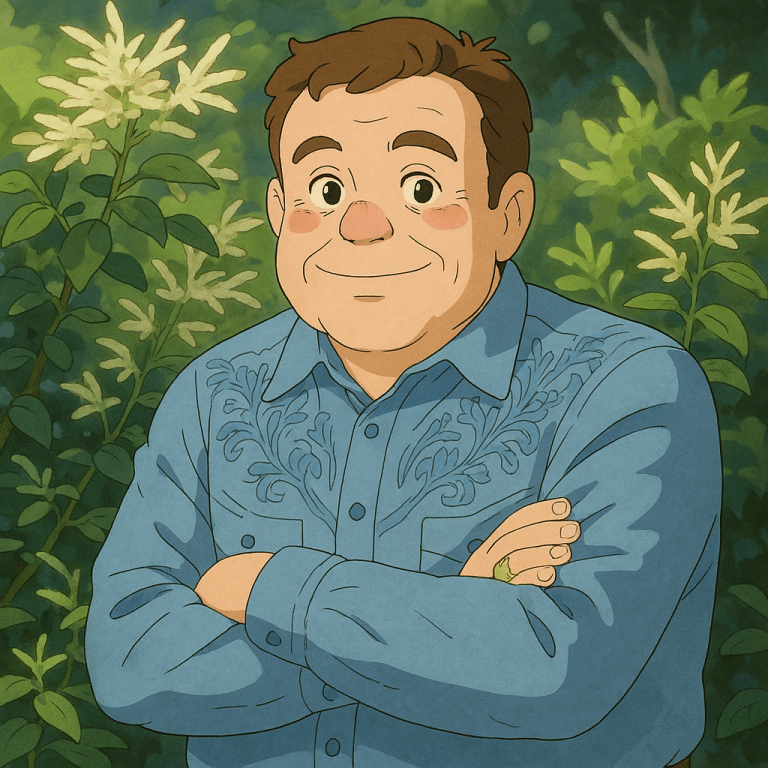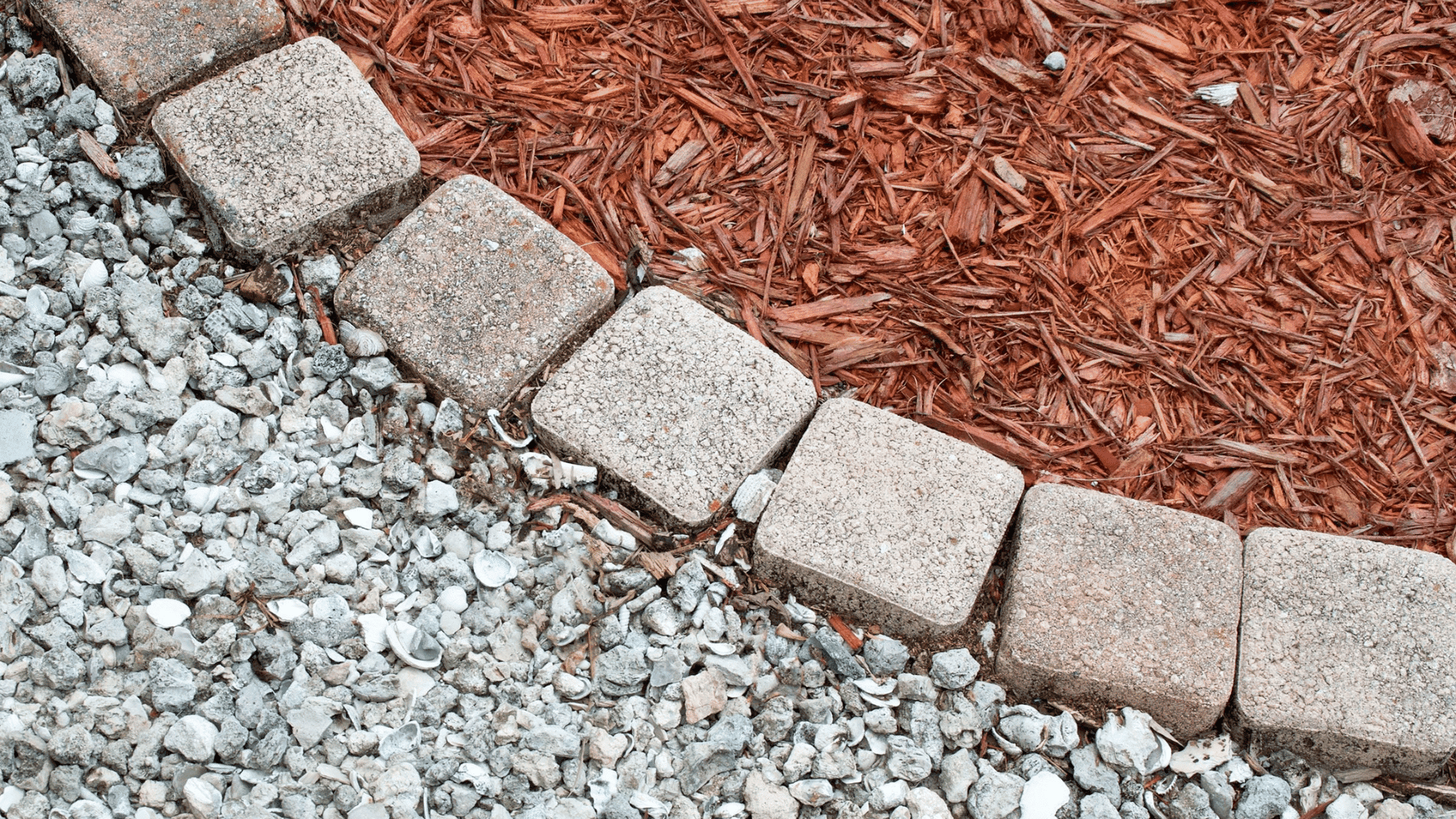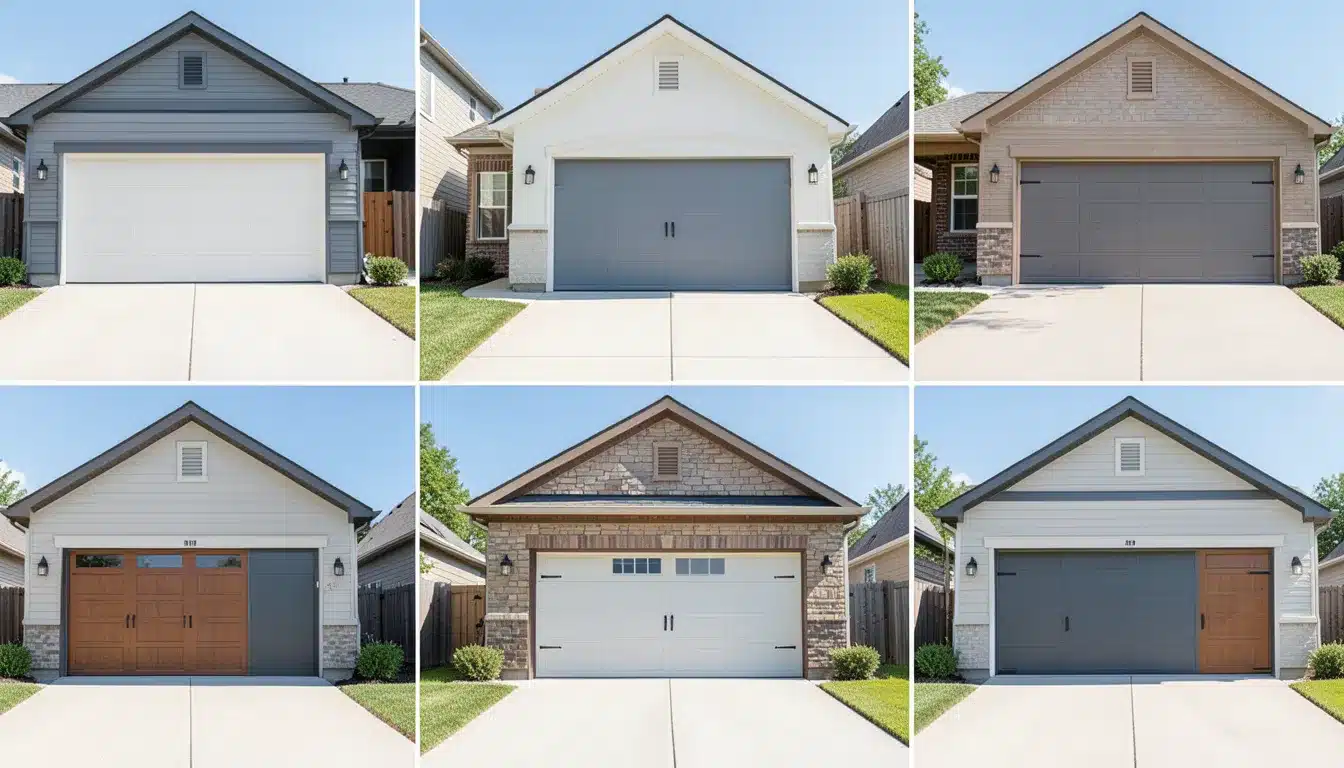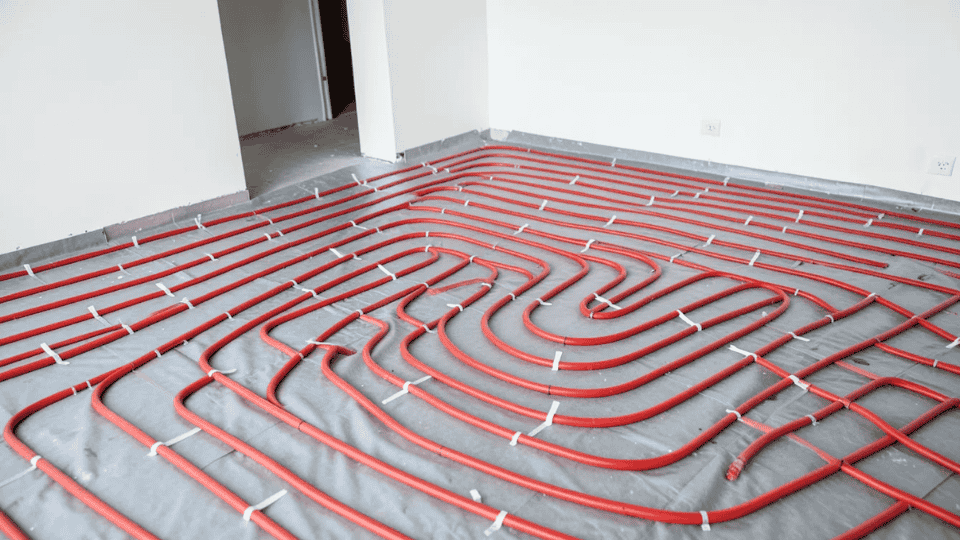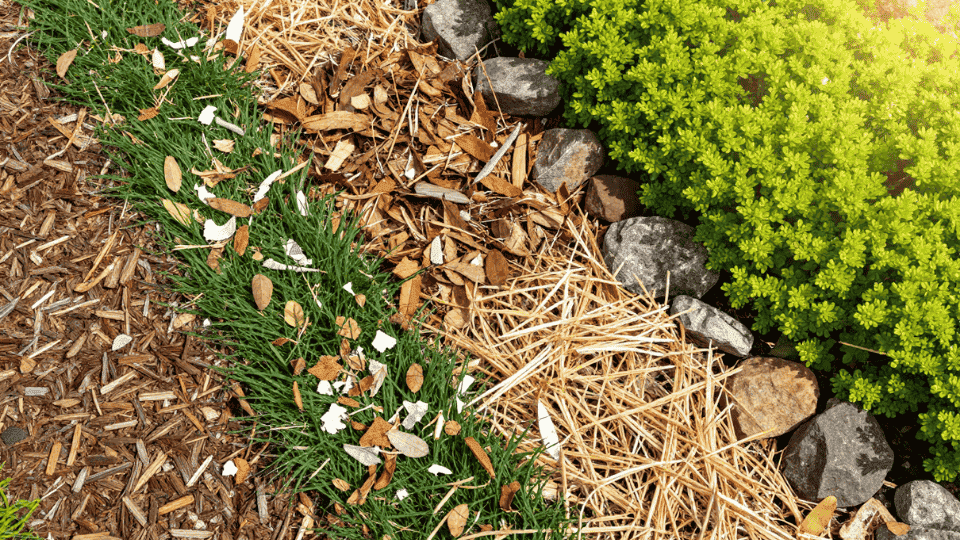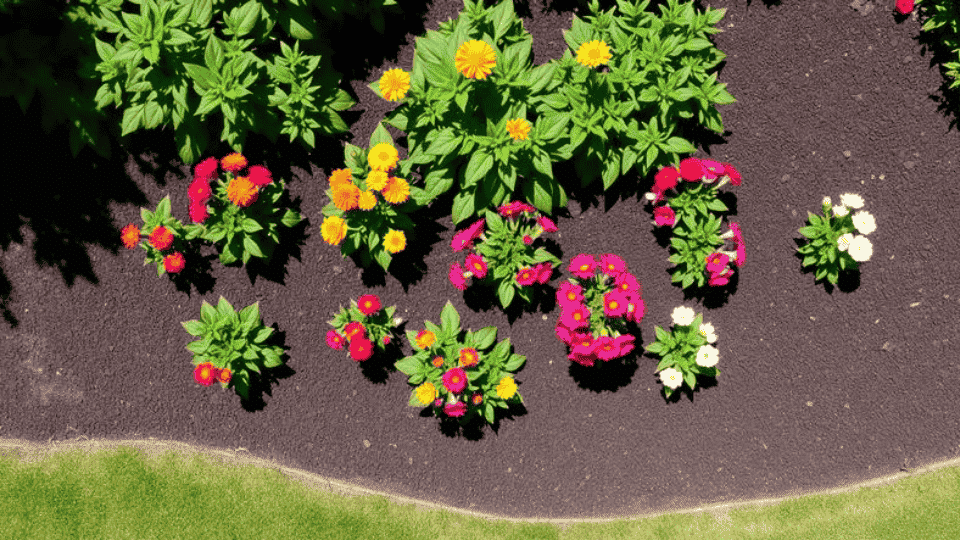Choosing the right ground cover can make a big difference in how your yard looks and works. It affects plant health, soil condition, and how much time you spend on upkeep.
Two of the most common ground covers are rocks and mulch. Both are used in flower beds, around trees, and in open spaces to protect the soil and reduce weed growth.
Rocks are long-lasting and need little care. Mulch breaks down over time and adds nutrients to the soil. Each has benefits and drawbacks that matter when planning your yard.
So, how do you choose?
In this blog, we’ll break down the pros and cons of rocks and mulch. You’ll learn how they work, what they cost, and which one fits your yard best. By the end, you’ll have the facts you need to make a clear and simple choice.
Rocks vs Mulch
When deciding between rocks and mulch, it helps to see how they compare at a glance. Each has strong points and weak spots. The better option depends on your yard, your plants, and how much time you want to spend keeping it all looking good.
| Feature | Rocks | Mulch |
|---|---|---|
| Soil Benefits | No nutrients added | Breaks down and feeds the soil |
| Lifespan | Long-lasting, doesn’t break down | Needs to be replaced every 1–2 years |
| Cost | Higher upfront cost | Cheaper upfront, but adds up over time |
| Heat Impact | Can trap and reflect heat | Helps keep soil cool |
| Weed Control | Works well with a weed barrier | Also helps, especially with thick layers |
| Maintenance | Very low maintenance | Needs regular checks and topping up |
| Best For | Dry areas, paths, borders | Plant beds, veggie gardens, trees |
Both options can be useful if matched to the right spot in your yard. Rocks may be better for dry or windy areas, while mulch is great for plant health and soil care. The key is to think about your goals and pick what fits best.
What Is Mulch?
Mulch is a layer of material spread over soil to protect it and help plants grow better. It comes in many forms, like shredded bark, wood chips, straw, and compost. Each type offers a natural way to support plant beds and improve soil health.
Over time, mulch breaks down and becomes part of the soil. This process adds nutrients and helps the soil hold moisture. It also keeps the surface cool and blocks weeds from growing.
Mulch is often used in flower beds, vegetable gardens, and around trees or shrubs. It works well in areas where soil needs a boost. Many gardeners choose it to keep their plants healthy and their gardens looking clean.
What Is Rock Ground Cover?
Rock ground cover includes small stones, gravel, and decorative rocks used in landscaping. These materials are often placed on top of soil to give a clean look and prevent weed growth. Unlike mulch, rocks do not break down over time.
Rocks are used most in dry areas where water is limited. They work well in borders, walkways, and places with little plant life. Desert gardens and low-maintenance yards often feature rock ground cover.
One of the main benefits of rocks is that they last for many years without needing to be replaced. Once placed, they stay in place and require very little upkeep. This makes them a solid choice for long-term landscaping.
Pros and Cons of Using Mulch
Mulch is one of the most popular choices for garden beds because of its many benefits for the soil and plants. It adds organic matter, protects the surface, and helps control weeds. But like any ground cover, it comes with a few trade-offs that are important to know.
| Mulch – Pros | Mulch – Cons |
|---|---|
| Feeds the soil as it breaks down | Needs to be replaced regularly |
| Helps keep soil cool and retain moisture | May attract pests or grow mold if too wet |
| Blocks weeds when applied in thick layers | It can wash away during heavy rain or strong winds |
| Adds a soft, natural look to plant beds | May be a fire risk in dry or hot climates |
Mulch is a great fit for garden spaces where plant health is a top priority. It works especially well around flowers, vegetables, and young trees. As long as it’s used and maintained properly, mulch can help build a stronger, healthier garden space over time.
Pros and Cons of Using Rocks
Rock ground cover is a good choice when you want something that lasts for years with very little care. It’s widely used in dry or windy climates because it stays in place and holds up well against the elements. Still, it has limits—especially when it comes to supporting plant growth.
| Rocks – Pros | Rocks – Cons |
|---|---|
| Long-lasting and doesn’t need replacement | Does not feed or improve the soil |
| Helps reduce erosion and soil loss | Can hold heat, which may harm nearby plants |
| Works well in dry, windy, or low-maintenance areas | Higher upfront cost compared to mulch |
| Available in many sizes and colors for styling | Hard to move or switch out once installed |
Rocks are ideal for decorative areas, walkways, and regions with limited rainfall. They give structure to your landscape without requiring frequent updates. But for plant-heavy spaces or areas needing soil care, mulch is often the better pick.
Which Is Better for Your Climate?
Your local weather plays a big part in choosing between rocks and mulch. Each one works better in certain conditions, so it helps to match the material to your environment.
Rocks are better for dry, hot areas where rainfall is low. They don’t break down, blow away, or hold too much water, making them ideal for desert or drought-prone spaces.
Mulch works better in cool or damp places where moisture matters. It holds water and helps protect roots from frost. But in very humid places, mulch can break down faster and may grow mold if not watched closely.
Which Is Better for Plants and Trees?
If plant health is your top concern, mulch is usually the better choice. It helps the soil hold moisture, keeps roots cool, and slowly feeds the earth as it breaks down.
Mulch also acts as a shield for tree roots and garden plants. It keeps the ground from drying out and stops weeds from stealing nutrients.
Rocks don’t feed the soil, and in full sun, they can hold heat that may stress delicate plants. That’s why mulch is best around vegetables, trees, and flowers, while rocks are better for open spaces or dry spots.
Can You Mix Rocks and Mulch in One Yard?
Yes, you can use both rocks and mulch in one landscape—if you plan it well. Mixing the two can give you the best of both worlds. Use rocks in areas with heavy foot traffic, like walkways, borders, and around patios. They won’t shift easily and add structure to the space.
In plant beds, using mulch can protect roots and feed the soil. This combo helps balance function and style while keeping your yard easy to manage.
Cost and Maintenance Comparison
Cost is a big factor when choosing between mulch and rocks. While mulch may seem like the cheaper choice at first, the costs can build up over time. Rocks cost more at the start, but they usually don’t need to be replaced for many years.
| Feature | Mulch | Rocks |
|---|---|---|
| Initial Cost | Lower – around $30–$50 per cubic yard | Higher – around $60–$100 per cubic yard |
| Replacement Frequency | Needs replacing every 1–2 years | Rarely needs to be replaced |
| Annual Maintenance | Regular topping off and cleanup | Occasional weeding or washing |
| Estimated Yearly Cost | $100–$300 depending on yard size | $0–$100 after initial setup |
In the long run, rocks may save money and effort, especially in areas that don’t need a lot of soil care. But if your focus is plant growth and soil health, mulch might be worth the ongoing cost.
Tips for Making the Right Choice
Choosing between rocks and mulch doesn’t have to be hard. A few key points can guide your decision and help you pick what works best for your space and lifestyle.
- Think about your plants: Use mulch around flowers, trees, or vegetables that need rich, moist soil.
- Check your sunlight: In full sun, rocks can hold heat—use with care around heat-sensitive plants.
- Know your water needs: Mulch keeps moisture in the soil; rocks don’t.
- Look at your time: If you want something low-maintenance, rocks may be a better choice.
- Match your style: Rocks give a bold look; mulch blends softly with green spaces.
- Plan for change: Mulch is easy to refresh or replace; rocks are more permanent.
Taking a few minutes to think through these points will help you avoid future stress. It’s all about finding the best fit for your plants, climate, and how you want your yard to look and feel.
Conclusion
Both rocks and mulch can help protect your soil and enhance the appearance of your yard. The best option depends on what matters most to you.
Rocks last a long time and don’t need much upkeep, but they can trap heat and don’t feed the soil. Mulch is initially cheaper and helps plants grow better, but it needs to be replaced frequently and can also attract pests.
There’s no one right answer for every yard. What works for a hot, dry area may not be the best for a cool, wet space. The kind of plants you grow also plays a big part in what you should choose.
Consider your goals, local weather conditions, and the amount of time you’re willing to dedicate to maintaining your yard. Then pick the option that fits best.
A little planning now can save time, money, and stress later—and lead to a healthier, cleaner yard.

